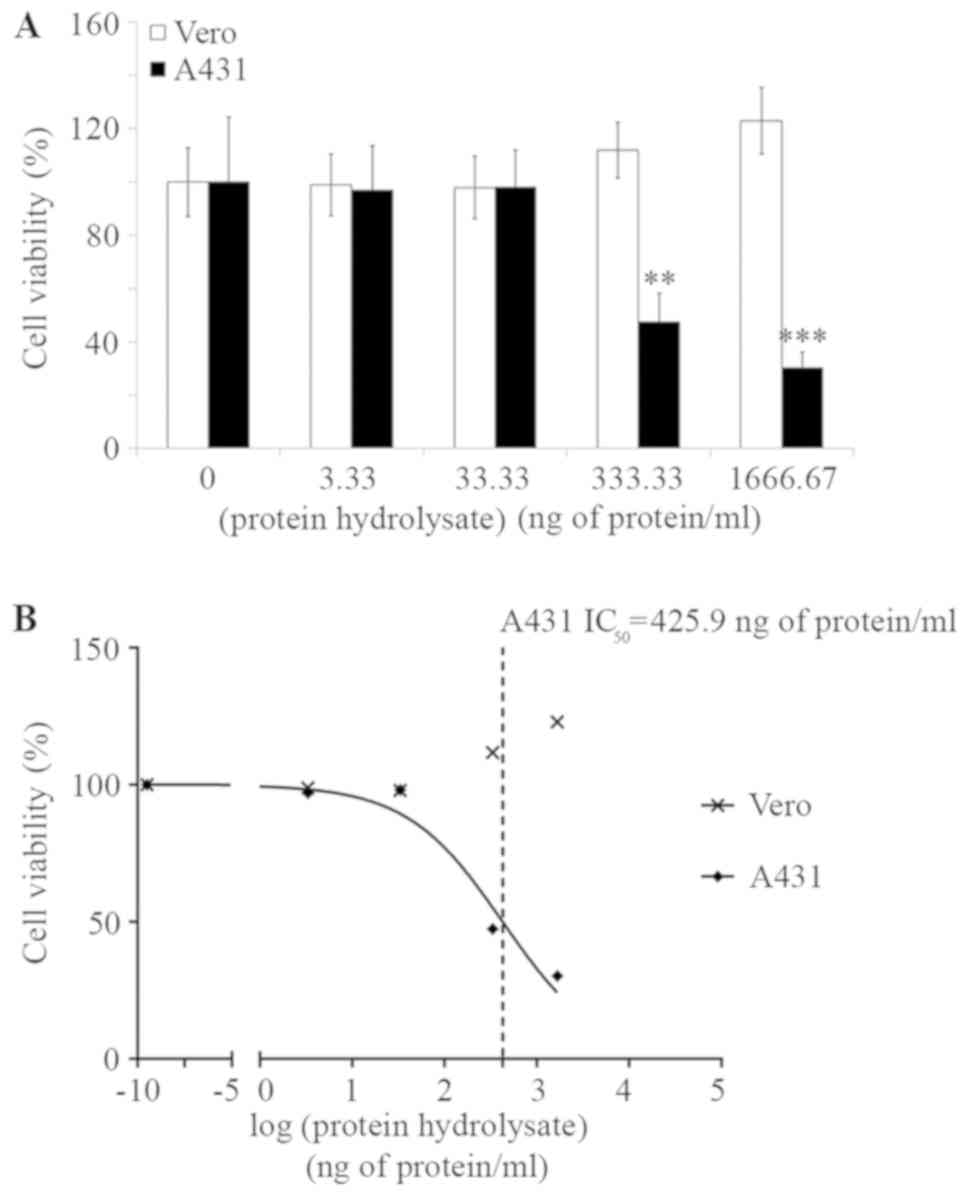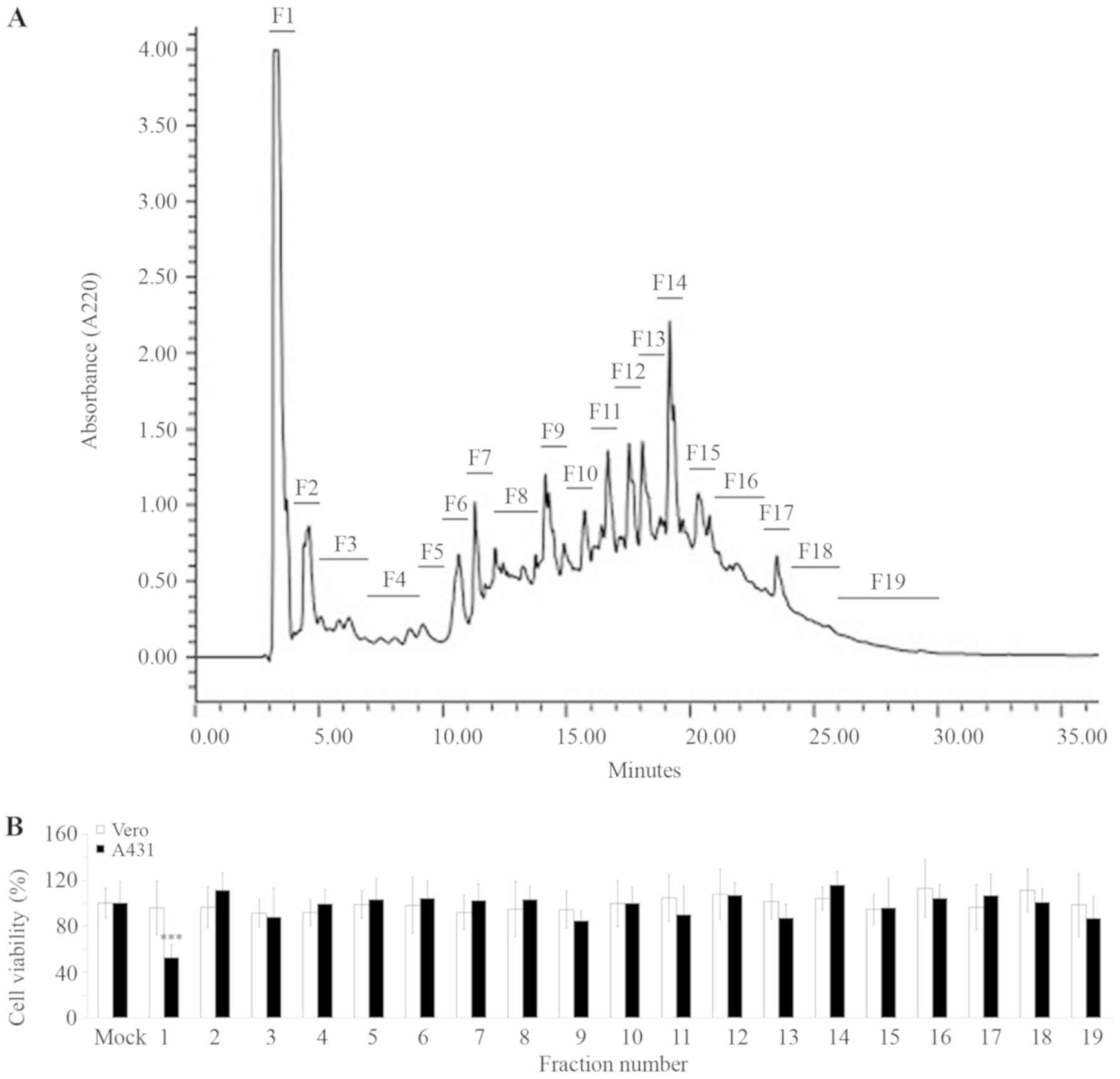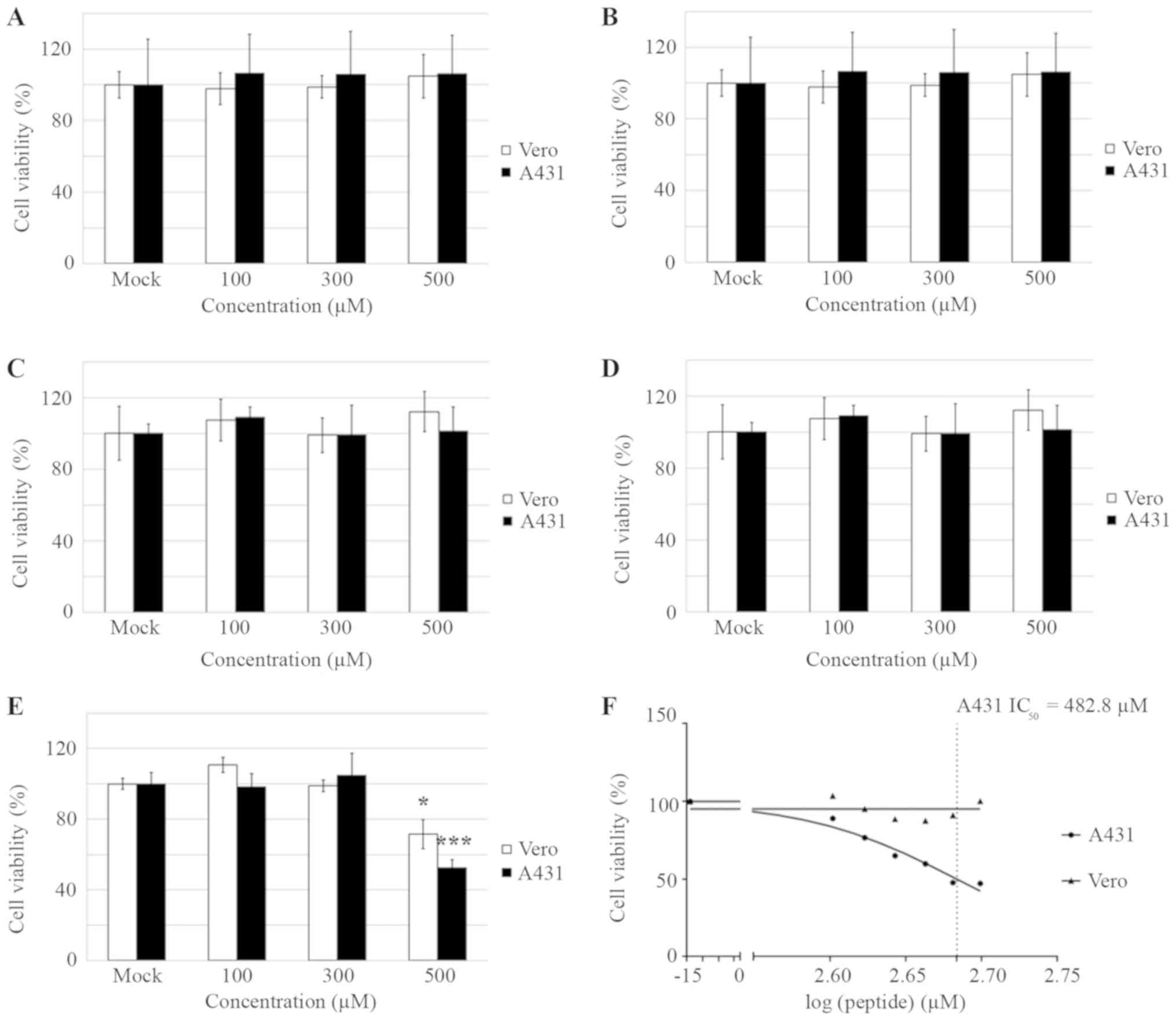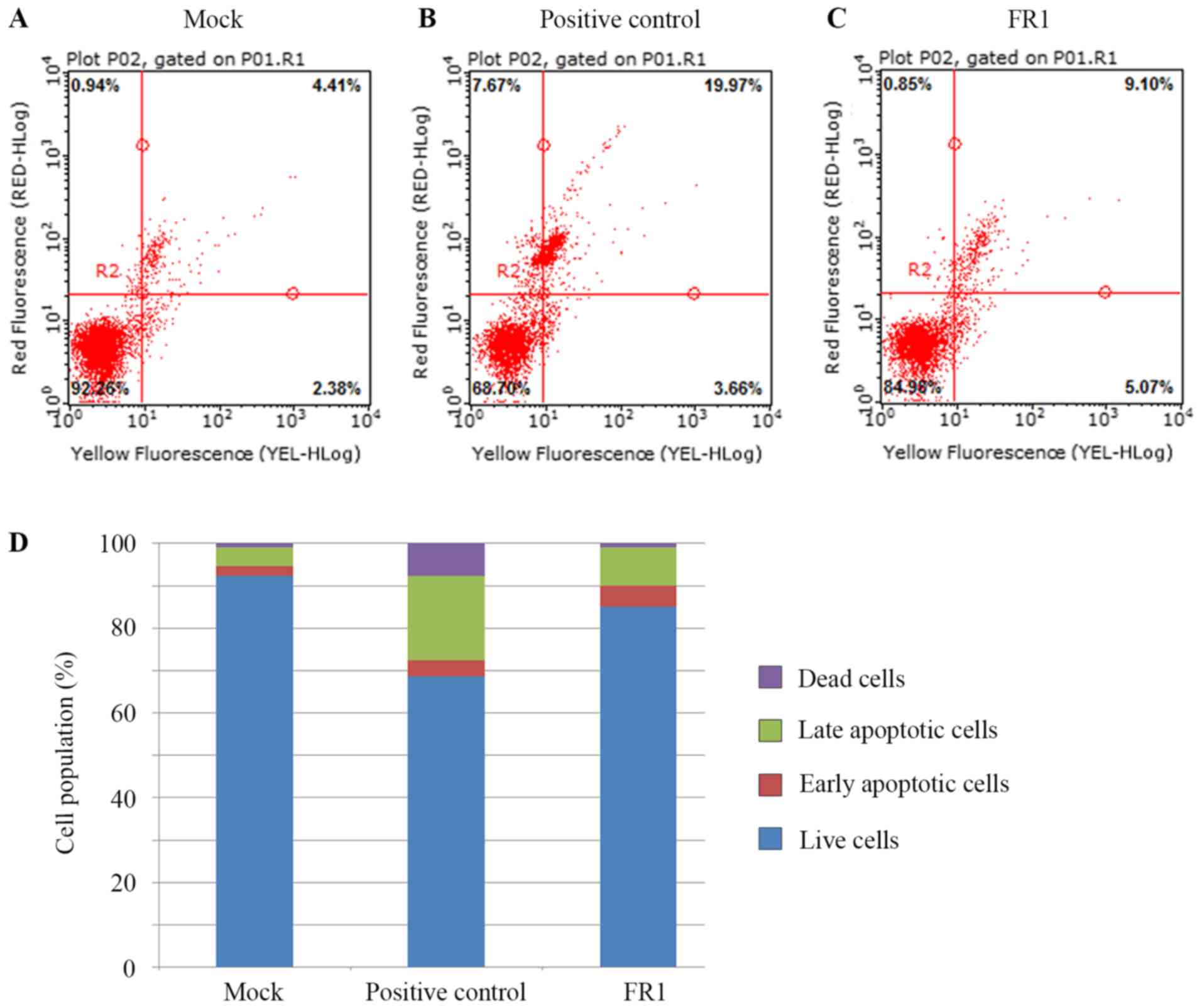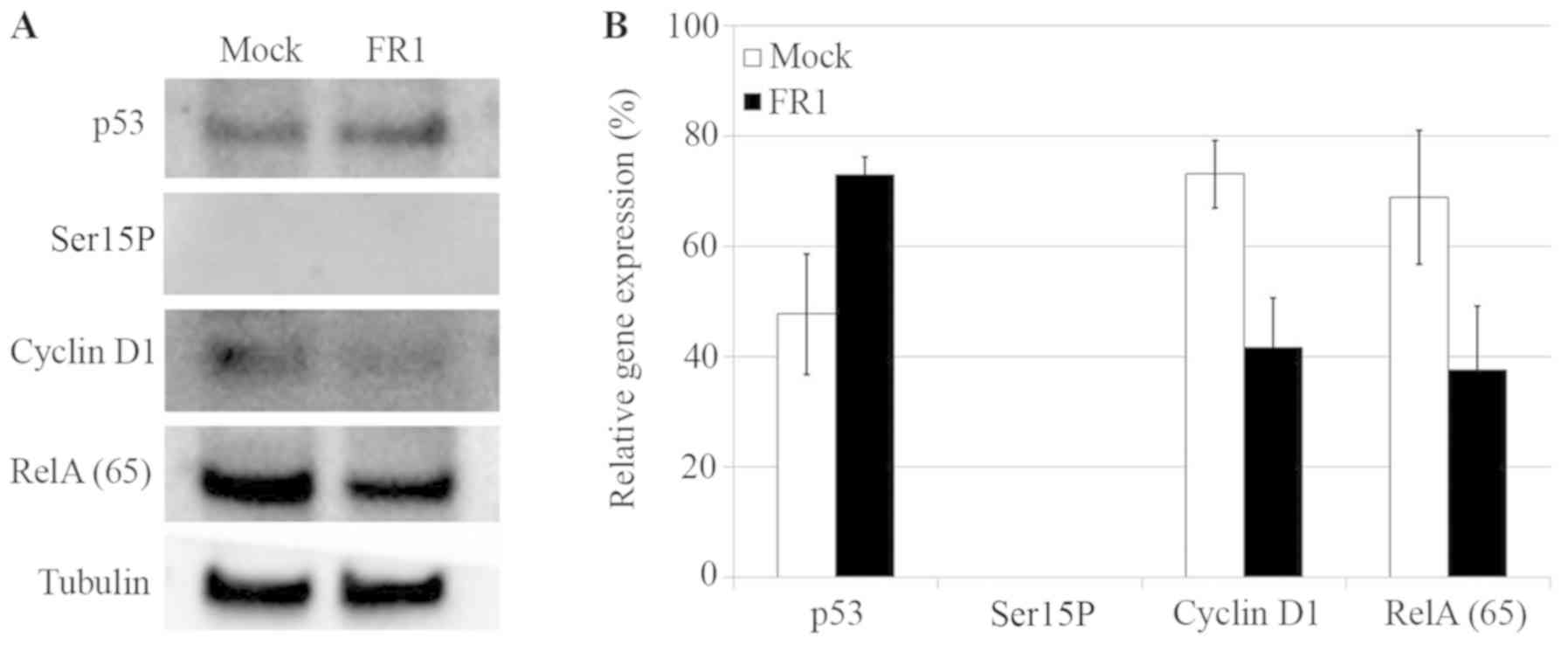|
1
|
Subudhi HN, Choudhury BP and Acharya BC:
Potential medicinal plants from Mahanadi delta in the state of
Orissa. J Econ Taxon Bot. 16:479–487. 1992.
|
|
2
|
Perry LM and Metzger J: Medicinal plants
of East and Southeast Asia: Attributed properties and uses.
Bibliography. 2:447–493. 1980.
|
|
3
|
Laupattarakasem P, Houghton PJ, Hoult JR
and Itharat A: An evaluation of the activity related to
inflammation of four plants used in Thailand to treat arthritis. J
Ethnopharmacol. 85:207–215. 2003. View Article : Google Scholar : PubMed/NCBI
|
|
4
|
Pongboonrod S: Medicinal Plants of East
and Southeast Asia Attributed Properties and Use. Kasem Bunnakit
Publishing; Bangkok: 1971
|
|
5
|
Somchaichana J, Bunaprasert T and Patumraj
S: Acanthus ebracteatus Vahl. ethanol extract enhancement of
the efficacy of the collagen scaffold in wound closure: A study in
a full-thickness- wound mouse model. J Biomed Biotechnol.
2012:7545272012. View Article : Google Scholar : PubMed/NCBI
|
|
6
|
Mahasiripanth T, Hokputsa S, Niruthisard
S, Bhattarakosol P and Patumraj S: Effects of Acanthus
ebracteatus Vahl on tumor angiogenesis and on tumor growth in
nude mice implanted with cervical cancer. Cancer Manag Res.
4:269–279. 2012.PubMed/NCBI
|
|
7
|
WHO: World Health Statistics, . WHO Press;
Geneva: 2018
|
|
8
|
Chinembiri TN, du Plessis LH, Gerber M,
Hamman JH and du Plessis J: Review of natural compounds for
potential skin cancer treatment. Molecules. 19:11679–11721. 2014.
View Article : Google Scholar : PubMed/NCBI
|
|
9
|
Sarkar FH, Li Y, Wang Z and Kong D:
Cellular signaling perturbation by natural products. Cell Signal.
21:1541–1547. 2009. View Article : Google Scholar : PubMed/NCBI
|
|
10
|
Banjerdpongchai R, Wudtiwai B and Sringarm
K: Cytotoxic and apoptotic-inducing effects of purple rice extracts
and chemotherapeutic drugs on human cancer cell lines. Asian Pac J
Cancer Prev. 14:6541–6548. 2014. View Article : Google Scholar : PubMed/NCBI
|
|
11
|
Cho JJ, Cho CL, Kao CL, Chen CM, Tseng CN,
Lee YZ, Liao LJ and Hong YR: Crude aqueous extracts of Pluchea
indica (L.) Less. Inhibit proliferation and migration of cancer
cells through induction of p53-dependent cell death. BMC Complement
Altern Med. 12:2652012. View Article : Google Scholar : PubMed/NCBI
|
|
12
|
Sreelatha S, Jeyachitra A and Padma PR:
Antiproliferation and induction of apoptosis by Moringa oleifera
leaf extract on human cancer cells. Food Chem Toxicol.
49:1270–1275. 2011. View Article : Google Scholar : PubMed/NCBI
|
|
13
|
Nourazarian SM, Nourazarian A, Majidinia M
and Roshaniasl E: Effect of root extracts of medicinal herb
glycyrrhiza glabra on HSP90 gene expression and apoptosis in the
HT-29 colon cancer cell line. Asian Pac J Cancer Prev.
16:8563–8566. 2015. View Article : Google Scholar : PubMed/NCBI
|
|
14
|
Shahidi F and Zhong Y: Bioactive peptides.
J AOAC Int. 91:914–931. 2008.PubMed/NCBI
|
|
15
|
Hou Y, Wu Z, Dai Z, Wang G and Wu G:
Protein hydrolysates in animal nutrition: Industrial production,
bioactive peptides, and functional significance. J Anim Sci
Biotechnol. 8:242017. View Article : Google Scholar : PubMed/NCBI
|
|
16
|
Marqus S, Pirogova E and Piva TJ:
Evaluation of the use of therapeutic peptides for cancer treatment.
J Biomed Sci. 24:212017. View Article : Google Scholar : PubMed/NCBI
|
|
17
|
Bonifacino JS, Dasso M, Harford JB,
Lippincott- Schwartz J and Yamada KM: Current Protocols in Cell
Biology. John Wiley; New York: 1998
|
|
18
|
Waiyaput W, Payungporn S, Issara-Amphorn J
and Panjaworayan NT: Inhibitory effects of crude extracts from some
edible Thai plants against replication of hepatitis B virus and
human liver cancer cells. BMC Complement Altern Med. 12:2462012.
View Article : Google Scholar : PubMed/NCBI
|
|
19
|
Lear S and Cobb SL: Pep-Calc.com: A set of
web utilities for the calculation of peptide and peptoid properties
and automatic mass spectral peak assignment. J Comput Aided Mol
Des. 30:271–277. 2016. View Article : Google Scholar : PubMed/NCBI
|
|
20
|
Schutte B, Nuydens R, Geerts H and
Ramaekers F: Annexin V binding assay as a tool to measure apoptosis
in differentiated neuronal cells. J Neurosci Methods. 86:63–69.
1998. View Article : Google Scholar : PubMed/NCBI
|
|
21
|
Schmid I, Krall WJ, Uittenbogaart CH,
Braun J and Giorgi JV: Dead cell discrimination with
7-amino-actinomycin D in combination with dual color
immunofluorescence in single laser flow cytometry. Cytometry.
13:204–208. 1992. View Article : Google Scholar : PubMed/NCBI
|
|
22
|
Park DJ, Nakamura H, Chumakov AM, Said JW,
Miller CW, Chen DL and Koeffler HP: Transactivational and DNA
binding abilities of endogenous p53 in p53 mutant cell lines.
Oncogene. 9:1899–1906. 1994.PubMed/NCBI
|
|
23
|
Kwok TT, Mok CH and Menton-Brennan L:
Up-regulation of a mutant form of p53 by doxorubicin in human
squamous carcinoma cells. Cancer Res. 54:2834–2836. 1994.PubMed/NCBI
|
|
24
|
Rivlin N, Koifman G and Rotter V: p53
orchestrates between normal differentiation and cancer. Semin
Cancer Biol. 32:10–17. 2015. View Article : Google Scholar : PubMed/NCBI
|
|
25
|
Wong RP, Tsang WP, Chau PY, Co NN, Tsang
TY and Kwok TT: p53-R273H gains new function in induction of drug
resistance through down-regulation of procaspase-3. Mol Cancer
Ther. 6:1054–1061. 2007. View Article : Google Scholar : PubMed/NCBI
|
|
26
|
Chen F, Castranova V and Shi X: New
insights into the role of nuclear factor-kappaB in cell growth
regulation. Am J Pathol. 159:387–397. 2001. View Article : Google Scholar : PubMed/NCBI
|
|
27
|
Alao JP: The regulation of cyclin D1
degradation: Roles in cancer development and the potential for
therapeutic invention. Mol Cancer. 6:242007. View Article : Google Scholar : PubMed/NCBI
|
|
28
|
Wang W, Takimoto R, Rastinejad F and
El-Deiry WS: Stabilization of p53 by CP-31398 inhibits
ubiquitination without altering phosphorylation at serine 15 or 20
or MDM2 binding. Mol Cell Biol. 23:2171–2181. 2003. View Article : Google Scholar : PubMed/NCBI
|
|
29
|
Pang LY, Saunders L and Argyle DJ:
Epidermal growth factor receptor activity is elevated in glioma
cancer stem cells and is required to maintain chemotherapy and
radiation resistance. Oncotarget. 8:72494–72512. 2017. View Article : Google Scholar : PubMed/NCBI
|
|
30
|
Loughery J, Cox M, Smith LM and Meek DW:
Critical role for p53-serine 15 phosphorylation in stimulating
transactivation at p53-responsive promoters. Nucleic Acids Res.
42:7666–7680. 2014. View Article : Google Scholar : PubMed/NCBI
|
|
31
|
Hokputsa S, Harding SE, Inngjerdingen K,
Jumel K, Michaelsen TE, Heinze T, Koschella A and Paulsen BS:
Bioactive polysaccharides from the stems of the Thai medicinal
plant Acanthus ebracteatus: Their chemical and physical
features. Carbohydr Res. 339:753–762. 2004. View Article : Google Scholar : PubMed/NCBI
|
|
32
|
Westerhoff HV, Zasloff M, Rosner JL,
Hendler RW, De Waal A, Vaz Gomes A, Jongsma PM, Riethorst A and
Juretić D: Functional synergism of the magainins PGLa and
magainin-2 in Escherichia coli, tumor cells and liposomes. Eur J
Biochem. 228:257–264. 1995. View Article : Google Scholar : PubMed/NCBI
|
|
33
|
Hu C, Chen X, Huang Y and Chen Y:
Synergistic effect of the pro-apoptosis peptide kla-TAT and the
cationic anticancer peptide HPRP-A1. Apoptosis. 23:132–142. 2018.
View Article : Google Scholar : PubMed/NCBI
|
|
34
|
Casimiro MC, Crosariol M, Loro E, Li Z and
Pestell RG: Cyclins and cell cycle control in cancer and disease.
Genes Cancer. 3:649–657. 2012. View Article : Google Scholar : PubMed/NCBI
|
|
35
|
Prives C and Hall PA: The p53 pathway. J
Pathol. 187:112–126. 1999. View Article : Google Scholar : PubMed/NCBI
|
|
36
|
Sigal A and Rotter V: Oncogenic mutations
of the p53 tumor suppressor: The demons of the guardian of the
genome. Cancer Res. 60:6788–6793. 2000.PubMed/NCBI
|
|
37
|
Tang X, Zhu Y, Han L, Kim AL, Kopelovich
L, Bickers DR and Athar M: CP-31398 restores mutant p53 tumor
suppressor function and inhibits UVB-induced skin carcinogenesis in
mice. J Clin Invest. 117:3753–3764. 2007. View Article : Google Scholar : PubMed/NCBI
|
|
38
|
Li D, Marchenko ND, Schulz R, Fischer V,
Velasco-Hernandez T, Talos F and Moll UM: Functional inactivation
of endogenous MDM2 and CHIP by HSP90 causes aberrant stabilization
of mutant p53 in human cancer cells. Mol Cancer Res. 9:577–588.
2011. View Article : Google Scholar : PubMed/NCBI
|
|
39
|
Brantley DM, Chen CL, Muraoka RS, Bushdid
PB, Bradberry JL, Kittrell F, Medina D, Matrisian LM, Kerr LD and
Yull FE: Nuclear factor-kappaB (NF-kappaB) regulates proliferation
and branching in mouse mammary epithelium. Mol Biol Cell.
12:1445–1455. 2001. View Article : Google Scholar : PubMed/NCBI
|
|
40
|
Hew CS, Khoo BY and Gam LH: The
anti-cancer property of proteins extracted from Gynura
procumbens (Lour.) Merr. PLoS One. 8:e685242013. View Article : Google Scholar : PubMed/NCBI
|
|
41
|
Prateep A, Sumkhemthong S, Suksomtip M,
Chanvorachote P and Chaotham C: Peptides extracted from edible
mushroom: Lentinus squarrosulus induces apoptosis in human lung
cancer cells. Pharm Biol. 55:1792–1799. 2017. View Article : Google Scholar : PubMed/NCBI
|
|
42
|
Issara-Amphorn J and T-Thienprasert NP:
Preliminary in vitro pro-apoptotic effects of Cratoxylum formosum
crude leaf extracts. Int J Appl Res Nat Prod. 7:26–30. 2014.
|
|
43
|
Budchart P, Khamwut A, Sinthuvanich C,
Ratanapo S, Poovorawan Y and T-Thienprasert NP: Partially purified
gloriosa superba peptides inhibit colon cancer cell viability by
inducing apoptosis through p53 upregulation. Am J Med Sci.
354:423–429. 2017. View Article : Google Scholar : PubMed/NCBI
|
|
44
|
Beg AA, Sha WC, Bronson RT, Ghosh S and
Baltimore D: Embryonic lethality and liver degeneration in mice
lacking the RelA component of NF-kappa B. Nature. 376:167–170.
1995. View Article : Google Scholar : PubMed/NCBI
|















